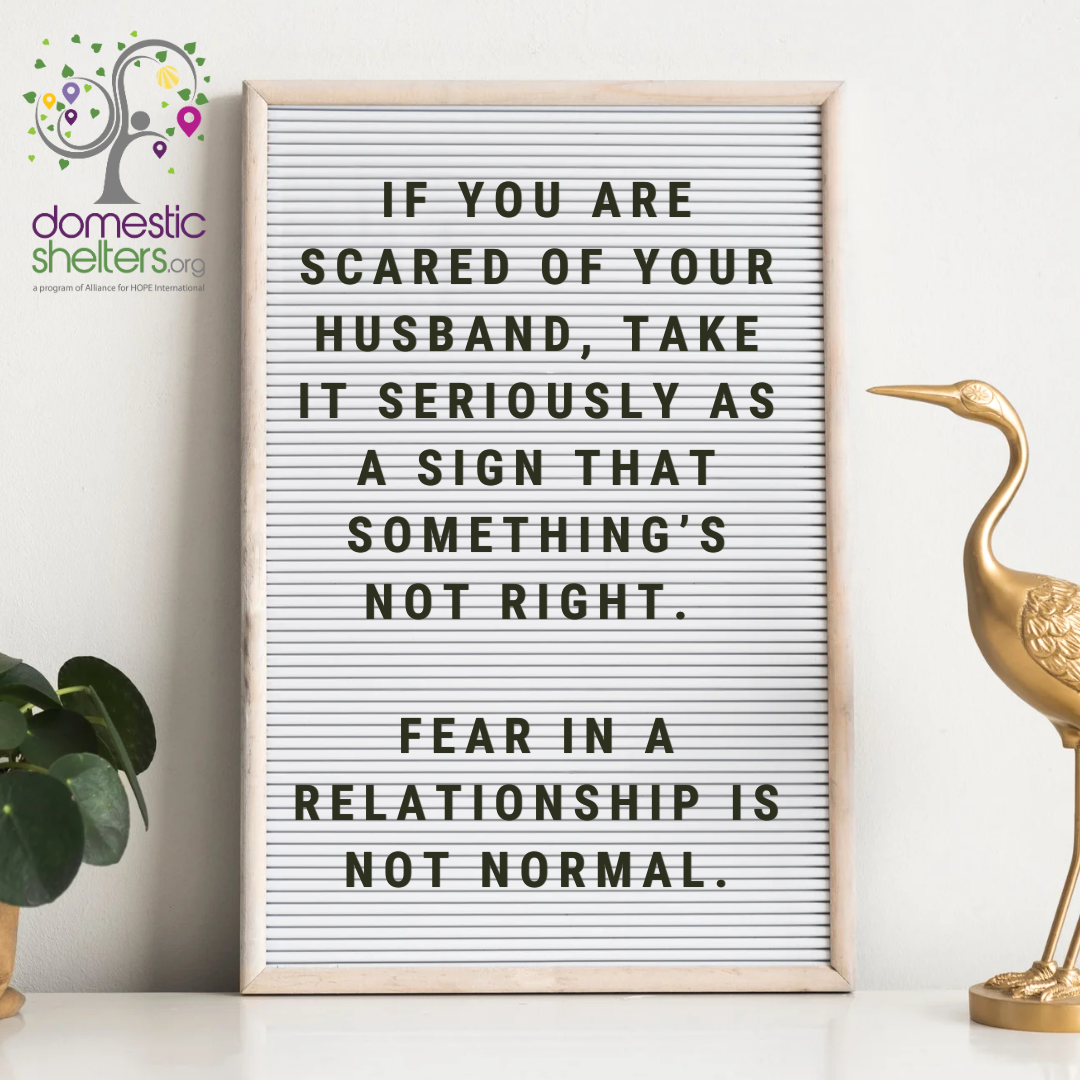1. Select a discrete app icon.

notes
I'm Scared of My Husband. Is It Abuse?
Fear is a pretty good indicator that something isn’t right in a relationship. Find out if what you’re experiencing is abuse
- Sep 04, 2024

If you’ve ever said (or thought), “I am scared of my husband,” there’s a good chance what you’re experiencing is abuse.
“Of course, it’s a bit more complicated than a simple yes-or-no question,” says social worker and psychotherapist Heather Howe. “But I would say that, in a majority of cases, if you’re afraid of your partner, there’s a very high chance that you’re being abused.”
Fear of Punishment
What does being afraid of your partner look like? It’s more than worrying he’ll be upset about something you said or did. After all, conflict in relationships is normal. It’s what comes next that matters most. The fear we’re talking about here is one-sided. It’s being afraid of what your partner will do to you if you make a mistake.
“It’s really the fear of punishment by a partner,” Howe says. “If you are afraid to do certain things like say no, voice your opinion, make a decision because you’re afraid of what he will do to you in return, that is abuse.”
And that element of punishment can take many forms. Sometimes it’s physical. Often, it’s not.
“It could be that you’re scared he’ll yell at you, kick the dog or share intimate photos or videos of you,” Howe says. “Sometimes it’s a fear that he’ll destroy things, threaten you or give you the silent treatment. Any action a partner takes for the purpose of punishing or controlling you can be considered abusive.”
That’s because punishment is a form of power and control, which is most often the crux of abuse.
Relationship Continuum
Fear of punishment is a powerful indicator of abuse, which can often be difficult to identify.
“So many of my clients come to me asking if what they’ve experienced is abuse,” Howe says. “It’s simply not always easy to spot.” One reason abuse can be so difficult to identify is because relationships often start out as uneventful, even healthy before the abuser starts using controlling tactics. For this reason, Howe says she likes to think of relationships as existing on a continuum: healthy, unhealthy, toxic, abusive and dangerous.
“Sometimes the word ‘abusive’ doesn’t feel like the right fit,” she says. And sometimes it just hasn’t happened yet.
“Often my clients will say to me, ‘Oh, he wore a mask at the beginning, and then he took the mask off,’” Howe says. “And I think sometimes that’s true, but I also think that sometimes the abuser’s behavior changes as he starts to feel more of a sense of ownership over his partner. So I think relationships can start with healthy features, move into unhealthy, toxic and then abusive and end dangerous.”
Trust Your Fear
If you are scared of your husband, take it seriously as a sign that something’s not right. Fear in a relationship is not normal. But, Howe says, her clients frequently overlook it or blame themselves.
“I find that survivors often pathologize themselves and view their thoughts and feelings through the lens of, ‘There’s something wrong with me.’ Because of course, that’s what abusers have been telling them for years,” she says. “[Survivors] will tell themselves they’re scared because of past trauma. That they need to stop feeling ‘so traumatized.’ But often, no, they’re scared because they’re in another scary situation.”
Howe says you can decipher these feelings by asking yourself why you are scared. Is it because of something your current partner has done to you? Or are you scared because of how a previous abuser has acted in a similar situation?
If it’s the latter, you could be experiencing a trauma response and would likely benefit from therapy. Also note that a healthy partner will go out of his way to make sure you’re comfortable once they know about trauma in your past.
If your fear is attributable to your current relationship, consider taking steps toward escape.

I Am Scared of My Husband: Now What?
Fear is a strong indicator of abuse. But if you’re still unsure if what you’re experiencing is abuse, get more information. Start by reading “Signs of an Abusive Relationship” to see what abuse looks like in real life. You can also call a domestic violence advocate at a hotline near you to find out if what you’re experiencing specifically is considered abuse. If yes, he or she can help you create a safety plan whether or not you’re ready to exit the relationship. In the meantime, read up on the inevitability of escalation of abuse.
Photo by Alex Green for Pexels.
Donate and change a life
Your support gives hope and help to victims of domestic violence every day.







